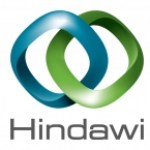Open Access
As anti-vaccinationists, global-warming denialists, and young-earth creationists know, it’s not too hard to fool the public with bogus science. But a new exercise by John Bohannon of Science suggests it’s not too hard too fool professionals either. Bohannon used a computer program to generate unique iterations of a purposely flawed paper, playing Mad Libs with the formula “Molecule X from lichen species Y inhibits the growth of cancer cell Z.” He sent his fake papers to 304 open-access journals, and it was accepted by more than half. Some of these journals are admittedly sketchy, but others…
With Open Access Week next week, there could be no greater open access-related news here in Canada than that the three granting councils are coming together to draft a common Open Access Policy.
Of those agencies (Social Sciences & Humanities Research Council, Natural Sciences & Engineering Research Council and Canadian Institute of Health Research), the CIHR already has a OA policy in effect. The process will be to first release a draft policy based on the CIHR one and then consult widely in the various communities that are involved and come to an agreement for a new common policy…
For various reasons, I've been collecting some resources around open access, open data and scientific and technological innovation in Canada. Since they might be more broadly useful that to just me, I thought I'd share them.
Of course, this list is incomplete. I've most likely left out whole swaths of stuff out there, both in terms of organizations and relevant posts and articles as well as institutional OA mandates and author funds I may have missed. Please feel free to suggest items in the comments.
One thing in particular I would like to add in a future iteration is a list of library/…
Earlier this month I got an invitation to the White House.
It was rather cryptic, asking me to attend an Event, today, followed by a reception in the Indian Treaty Room
Regrettably, I had to decline, I was in Europe, and would only just be getting back. The logistics of getting to DC in time were near impossible; there is no source of funding for such jaunts; and, most important, there was no way I could get the paperwork to be cleared to attend submitted in time.
So, they went ahead without me.
Paul Ginsparg
The Event was the Champions of Change - Open Science edition: a Call for…
Every time I see an ad for some remedy that "Helps BOOST the Immune System!" I die a little inside. It's not just that these products are often homeopathic bull*, but (as I've mentioned before), boosting the immune system can actually be a terrible idea. The immune system is a finely tuned instrument, and too much can be just as bad too little. Too much immune activation leads to allergies and autoimmune disorders like multiple sclerosis (MS) or lupus. We don't know exactly why, but the prevalence of these "hyperinflammtory disorders," where the immune system is over-…
Welcome to the most recent installment in my very occasional series of interviews with people in the publishing/science blogging/computing communities. This latest installment is with Mark Patterson, Executive Director of new OA publisher eLife. I attended an ARL Directors briefing conference call on eLife with Mark a little while back, highlighting for me just how interesting this project is and just how little I knew about it before the call.
Hence, this interview.
A huge thanks to Mark for agreeing to participate!
=============
Q0. Mark, tell us a bit about yourself and how you…
The Journal of Library Administration is published by Taylor & Francis, a big publishing conglomerate. According to Brian Mathews, while he was in the middle of putting together a special issue on the future of libraries he received notice that the editorial board was resigning due to conflicts with the publisher around what kind of author rights regime the journal should use. Here is the note he received from the board:
The Board believes that the licensing terms in the Taylor & Francis author agreement are too restrictive and out-of-step with the expectations of authors in the LIS…
Just like the author of this piece, I too attended a recent talk by Cory Doctorow -- a brilliant talk relating the life and death of Aaron Swartz with the theme of his latest novel Homeland -- and similarly I often marvel at how lucky we are that the web is free and open.
Enjoy this wonderful little satire and shudder at the possibilities.
The World Wide Web is Moving to AOL!
The World Wide Web has been great, but to be honest, it's also been a lot harder than it needs to be. I know some of you love creating new web pages and participating in online discussions, but the last thing most…
(This post supersedes the previous post listing items related to the Aaron Swartz story. That post was from January 20, 2013.)
A few comments.
Aaron Swartz's story has had a huge impact, it has reverberated far and wide not just through the interlinking worlds of technology and online activism but far into the mainstream. The library world has been no exception, with quite a few of the items below being from our world.
How has the library world reacted? If anything, I would hope that we have been challenged to examine our core values very carefully, to reflect deeply about how we make…
Expanding Public Access to the Results of Federally Funded Research
Increasing Public Access to the Results of Scientific Research
Second shoe drops: new White House Directive mandates OA
AAP Supports OSTP Policy Urging Collaboration in Public Access
White House Public Access Policy Is Out
White House Delivers New Open-Access Policy That Has Activists Cheering
SPARC applauds White House for landmark directive opening up access to scientific research
Big day for open access
All you loons
PLOS Commends White House Directive on Open Access
Happy, happy day! OSTP issues directive to expand open…
Like lunch, writing isn’t free
when librarians lend their politics - or, information wants to be doctrinaire
OLITA Resolution on Opposition to Access Copyright License Agreements
Calling out nonsense - Access Copyright
On (Access) Copyright
What is the government's interest in copyright? Not that of the public.
The Fastest Way to Send Big Chunks of Data Is Through the Mail, Not the Internet
Postdocalypse now
You Can't Start the Revolution from the Country Club
The end of the book as we know it, and I feel (mostly) fine.
Lending literacy
When Authorship Isn’t Enough: Lessons from CERN on the…
I'm doing a session at the Ontario Library Conference tomorrow with a few colleagues. The topic is Creative Commons licensing and I'm doing the section on Open Data. It's a kind of a replay of what we did for library staff about a year ago.
Here's the info this time:
Session: #308
Thursday 9:05 AM 10:20 AM
Creative Commons and Beyond
Speaker(s)
Timothy Bristow, Digital Humanities Librarian; John Dupuis, Acting Associate University Librarian, Information Services; Andrea Kosavic, Digital Initiatives Librarian; Sharon Wang, Association Librarian; York University
Learn more about creative…
The recent death of Aaron Swartz has provoked a lot of commentary on the web so I thought I would gather some of it here. This is by no means an attempt to be comprehensive as the amount of commentary has been truly vast. I've tried to gather enough so that someone working through even a small selection of the posts would get a good idea of all the dimensions of the story. I've also tried to perhaps give a bit of a library/academia slant in the selection.
As usual with these compilations, readers should feel free to suggest further readings in the comments especially those that add a…
On January 10, 2013 Rick Anderson published a post at The Scholarly Kitchen published on six mistakes library staff are making when dealing with our vendors. Most of them were fairly standard stuff like don't be rude, don't waste people's time. That sort of thing. (Yes, sometimes I think that every time I link to a Scholarly Kitchen article, an open access journal loses its wings.)
The sixth, however, was a bit different.
Putting political library concerns above patron needs. I’ve saved for last the “mistake” that I know is likely to be the most controversial, but I think it must be said.…
Paul Peters, Hindawi Publishing
The Scholarly Open Access web site says that Open Access journal house Hindawi Publishing may show some predatory characteristics. I've simply called Hindawi "dodgy". Their Chief Strategy Officer Paul Peters commented here on the blog and then swiftly replied to some questions of mine, showing that the firm realises that its on-line reputation is important to success. Here's what Mr. Peters says.
MR: Why did Hindawi's Journal of Archaeology go on-line months before it had any papers?
This is generally the case for all new journals that we launch, and I…
Two years ago I was dismayed to find that a pair of crank authors had managed to slip a pseudo-archaeological paper into a respected geography journal. Last spring they seemed to have pulled off the same trick again, this time with an astronomy journal. Pseudoscience is after all a smelly next-door neighbour of interdisciplinary science.* When I realised that the second paper was in a bogus Open Access journal, I drew the conclusion that the authors had fallen for a scam, paying the OA fee to get published in a journal whose academic standing they had severely misjudged. That's still my…
Hot on the heels of the hapless Science Publishing Group, I have received solicitation spam from another dodgy OA publisher, Hindawi Publishing in Cairo, with another odd on-line archaeology journal.
The Journal of Archaeology has 71 academics on its editorial board. And a strangely generic name. What it doesn't have is any published papers yet, after months on-line, or an editor-in-chief. So I wrote to some board members at European universities, and they replied that they thought the journal was probably legit, though they weren't exactly sure. "The lack of published papers and low…
While it has not generally been my practice to do year end review posts, artificially trying to tie the various and disparate strands of my blogging habits together into some sort of coherent story, I think for this year it's worth doing. And that's because my blogging year did seem to have a coherent theme -- advocating for a fairer and more just scholarly publishing ecosystem.
In particular I spent an awful lot of time advocating for Open Access in one way, shape or form. Not that I haven't always done so, but with all the various events happening in the academic and library worlds this…
OA and the UK Humanities & Social Sciences: Wrong risks and missed opportunities
One Size Fits All?: Social Science and Open Access
Statement on position in relation to open access(Institute of Historical Research)
The open access journal as a disruptive innovation
Openness, value, and scholarly societies: The Modern Language Association model
Public Library of Humanities: Envisioning a New Open Access Platform
Open Access: HEFCE, REF2020 and the Threat to Academic Freedom
More Issues in Open Access(#OA)
Open Access Publishing: Potential Unintended Consequences of the Finch Proposals…
Science Publishing Group is another scam Open Access journal publisher or academic vanity press. Yesterday they sent me a form-letter invitation to submit papers or become member of an unspecified editorial board or become a peer reviewer. "Join us!" But they don't even publish an archaeology journal. The closest they get to one is a godforsaken excuse for a journal named Social Sciences. It allegedly caters to everything from law to anthropology.
The best part is that they sent the letter to my Academy address. The one I use when editing Fornvännen, a rock-solid paper and OA archaeology…




